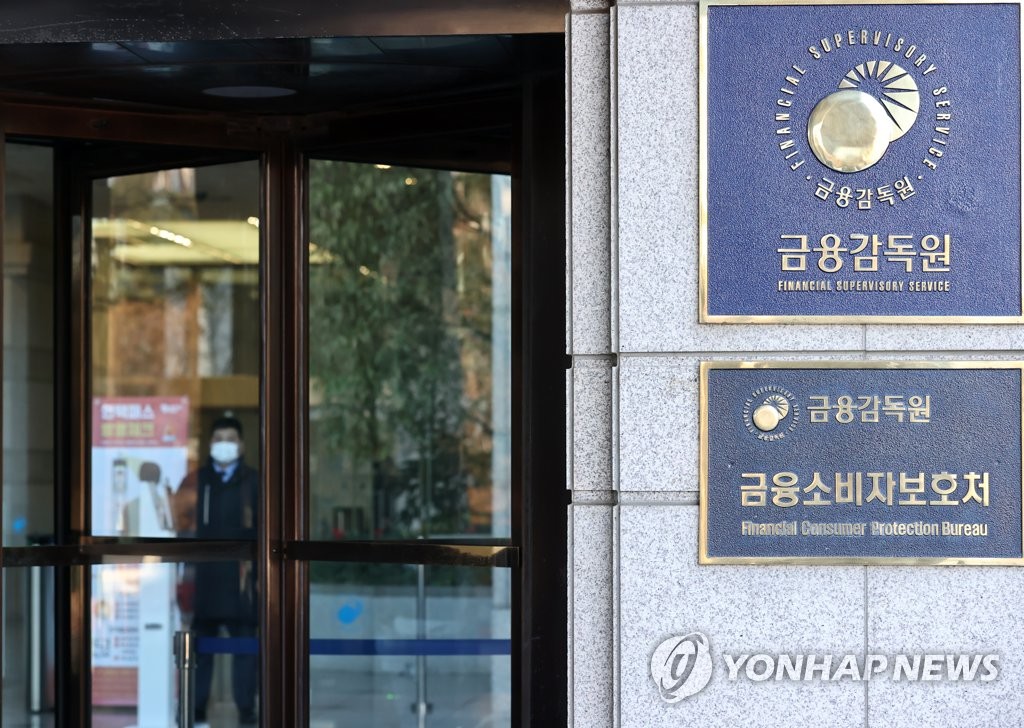Kongwoon Commission demands oversea office maintenance… In the first half of the year, the Financial Services Commission submitted an implementation plan
12 new designation of other public institutions, 2 cancellation of designation

[연합뉴스 자료사진]
(Sejong = Yonhap News) Reporter Chae Yeon = The Financial Supervisory Service, which caused controversy over lack of supervision due to the Lime Asset Management and Optimus private equity crisis, avoided designating a public institution.
However, the Financial Supervisory Service’s reservation of designation as a public institution was subject to conditions such as further reduction of higher ranks, oversea office maintenance, and reinforcement of management performance evaluation.
The Ministry of Strategy and Finance held a Public Institution Steering Committee (Kongwoon Committee) presided over by Second Vice Minister Ahn Il-hwan on the 29th, and deliberated and resolved the ‘2021 Public Institution Designation Proposal’.
◇ Designated as a public institution by the Financial Supervisory Service… Addition of stronger conditions than before
The Gongun Committee discussed the necessity of designating a public institution by the FSS, but decided to conditionally suspend the designation.
The Gongwoon Committee said, “We have decided to defer the designation of a public institution by the Financial Supervisory Service in consideration of the recent cases of poor supervision and independence in the execution of financial supervision, but to impose stronger conditions.”
In 2018, the Gongun Committee deferred the designation of a public institution by the Financial Supervisory Service under conditions such as eradication of hiring corruption, management disclosure at the level of public institutions, strict management evaluation, and resolution of inefficient organizational operation problems.
In 2019, problems such as hiring corruption, management disclosure, and management evaluation were resolved, but the need to designate a public institution was raised again due to the problem of reduction of higher ranks.
Accordingly, the Financial Supervisory Service submitted a plan to avoid designation by submitting a plan to reduce the ratio of the top ranks above the 3rd level to 35% level that can receive positions of team leader or higher within the next five years.
As a result of checking the current status of the FSS’s implementation of the existing reservation conditions, the Gongwoon Committee evaluated that they are generally in normal implementation, and then added further strengthened conditions.
First of all, the reduction of higher ranks was made more intense than the plan previously submitted by the FSS.
As of the end of 2018, the ratio of the top 3 or higher ranks, which was 43% of the FSS’s total staff, has decreased to 40% at the end of last year, and it is expected to achieve 35% as planned from 2022 to 2023. The Gongwoon Committee ordered to cut higher ranks more than this.
As a condition of reservation, the Gongwoon Committee not only reduced the ranks of higher ranks, but also prepared measures to improve the efficiency of organizational operations, such as overhauling overseas offices.
The Financial Supervisory Service’s overseas office,’Best Management’, also pointed out in 2017 by the Auditor.
In the evaluation of management performance, the proportion of the measurement indicators was expanded from the current 30% to 40%, and incentives were redeemed when irregularities were identified in the evaluation process to increase fairness and objectivity.
In addition, the customer satisfaction survey was implemented at the level of public institutions, conducted annually, and the results were reflected in management evaluation.
According to the decision on that day, the Financial Services Commission is planning to report the detailed implementation plan of the conditions for the reservation of public institutions designated by the Financial Supervisory Service to the Public Transportation Commission during the first half of the year.
The Gongwoon Committee emphasized that “If the results of the future promotion are insufficient, we plan to actively review the designation of public institutions by the FSS.”
◇ 12 other public institutions newly designated… Changed to the quasi-governmental institution of the Public Finance Agency
On this day, the Gongwoon Committee newly designated KEPCO MCS, which was in charge of bill payment and overload control, and KEPCO MCS, which was in charge of checking electricity meters and delivering bills.
Gongwoon Committee said, “These institutions are large-scale institutions that provide services to the public, unlike similar subsidiaries, and have been designated as public institutions because they need to improve publicity and accountability.”
Construction Technology Education Institute, Architecture and Space Research Institute, Geospatial Information Quality Management Institute, National Aviation Museum, National Maritime Science Museum, National Honam Area Biological Resources Center, Next Generation Numerical Prediction Model Development Project Team, Korea Employment and Labor Education Institute, Korea Institute of Materials Science, Korea Institute of Fusion Energy, etc. Is also newly designated as other public institutions.
On the other hand, two institutions, including the Korea Smart Grid Project Group and the Korea Construction Management Corporation, whose functions were transferred or the institutions were consolidated, canceled the designation of public institutions.
The Public Finance Agency, which had been designated as other public institution, changed its type to a quasi-governmental institution.
Accordingly, a total of 350 institutions, including 36 public enterprises, 96 quasi-governmental institutions, and 218 other public institutions, have been determined to be subject to management under the Act on the Operation of Public Institutions.
Unauthorized reproduction-prohibition of redistribution>
2021/01/29 18:33 sent
